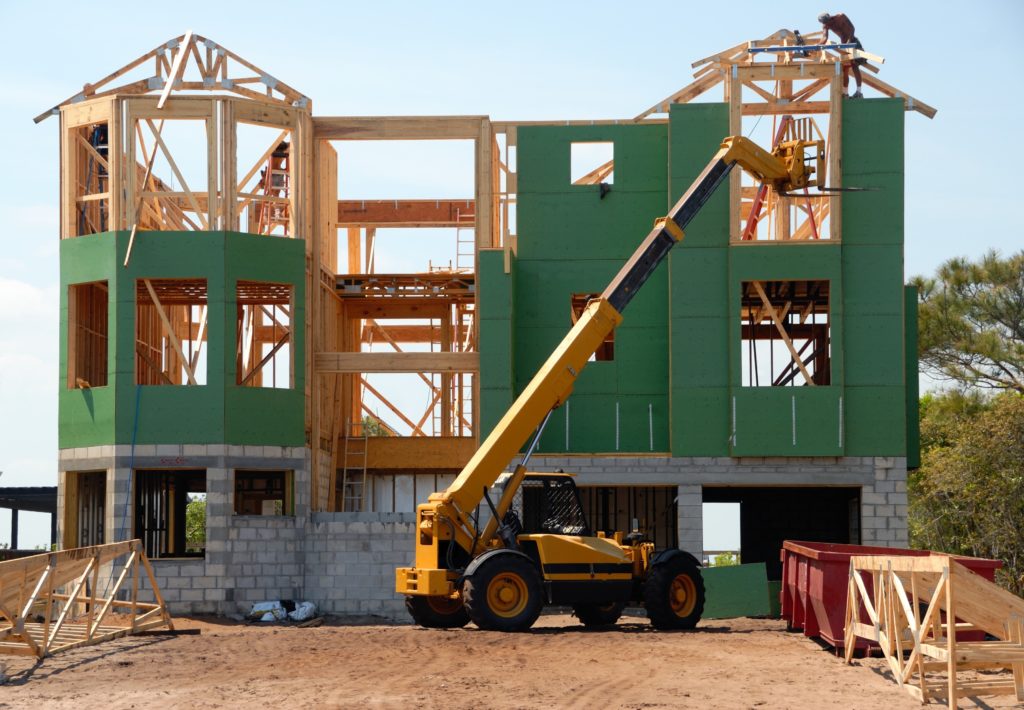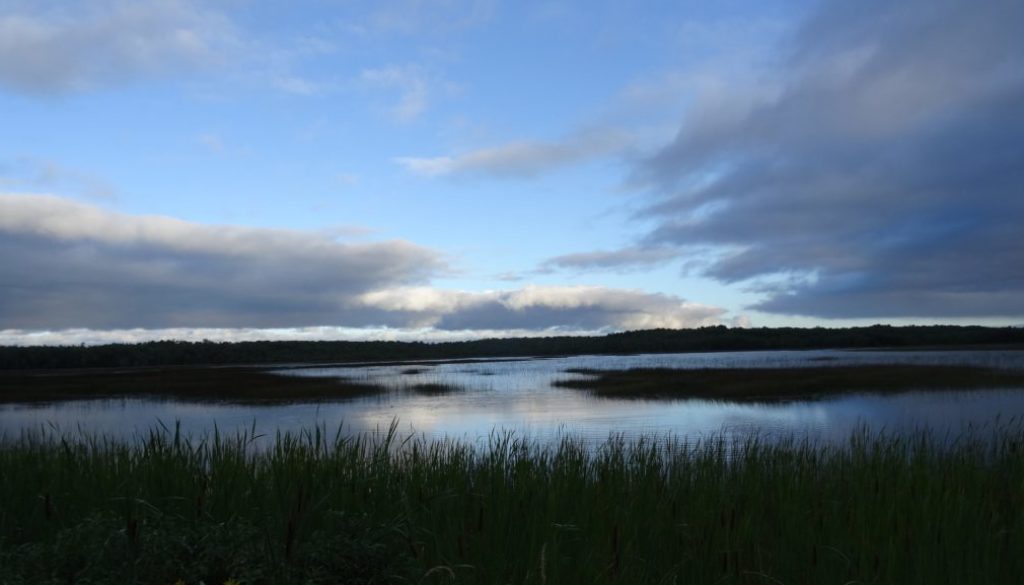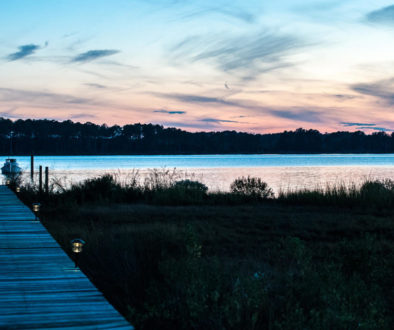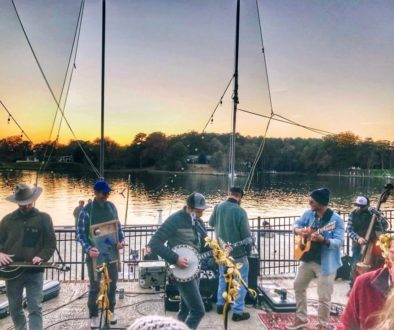For many, building a second home on the water is the stuff of dreams.
Owning a second home offers a sense of stability, accomplishment and arrival… and owning a brand-spanking new second home, even more so. The moment a builder hands you your set of keys and you walk through your door into your house for the first time is a pretty awesome moment.
That being said, building a home from the ground up can be overwhelming and stressful. I cannot emphasize how important it is to have an experienced counselor or advocate by your side to help navigate you through the process – especially in the Bay River region. There are countless decisions to be made, permits to obtain, and you must communicate with the County throughout the journey.
In this post, I have listed a number of points that are drawn from personal experience and observation.
Consider This
So what do we want to emphasize in this post? Well, a lot… And while we do not wish to discourage you from building your dream Bay River house, we do want to set some realistic expectations.
Below is a list of several key points to keep in mind when considering the building process. While this list could be significantly longer, here are a few of the ones I feel are most important:
- Build with a purpose in mind
- Know what the county requires
- Be thorough with lot selection
- Get to know your builder
- Differentiate between cost and value
Build with a Purpose in Mind

It is not uncommon to hear ‘is this the house you are going to die in?’ It may sound morbid, but what we really want to know is whether or not you ever plan on selling it.
If you think this vacation home will be passed down through your family, then build what you want. You can put in the water slide for the pool and build the custom garage dedicated solely to parking your boat without having to worry about resale down the road. Essentially, the longer you plan on owning the home, the more indulgent you can be in your decision making.
If you do not fall into this category, keep potential investment aspects of the home in mind while building. Think of each choice as a business or investment decision. If you are building a second home to take your family through the next 10 years of life, build accordingly. If you are building a home to spend the last dozen years of your life in, keep flexible interior mobility in mind.
If you know what your long-term goal is, making decisions will be much easier.
Know What is Required of You
Building anything in the Bay River region requires going through the proper county and obtaining various permits. There are flood zones to worry about, septic systems, wells… the list goes on.
Let’s take Mathews County, for instance. The typical steps involved in obtaining a permit for construction are as follows:
- Obtain a Zoning Permit from Mathews County
- Complete a Flood Zone Permit (if applicable)
- Fill out required Permit Application(s)
- Submit Construction Documents
- Documents will be reviewed by the County
- After the permit is issued, it must be posted on the work site
- Virginia Department of Health approval for the well and-or septic system must be submitted to the County
- A copy of an Elevation Certificate must be submitted to the County
- Certificate of Occupancy will be issued upon a final inspection is performed and all of the above steps are complete
Mathews County’s requirements will be (more or less) the same for any Bay River county construction. You do NOT want to begin any steps towards building until you have been in contact with the county’s building department and understand what the entire process will look like. Middlesex County, Gloucester County, Lancaster County, and Mathews County all provide extremely useful tools and guidelines on their websites, so don’t hesitate to start researching.
Be Thorough When Selecting a Lot
One of the biggest mistakes a buyer can make is focusing on the home and disregarding the lot. Anyone thinking of building a Bay River home should spend a great deal of time on choosing the perfect lot.
Oftentimes ‘lot premiums’ are assigned by builders and developers for the lots they deem more value – and their judgment is often incorrect. It is a great opportunity for a savvy buyer to find hidden value. Many different factors go into a good lot… water access, privacy, orientation, buffer, drainage, utilities, RPA’s and a host of other factors. Google Maps and county websites have made the process much easier, but be sure to thoroughly evaluate your lot selection.
Bear in mind, the two things that cannot be duplicated are the land upon which your house sits and the depth of the surrounding waterway. Bathroom tile, kitchen cabinets, floor plans, pier sizes… all of these items can be recreated. Likewise, if having a spectacular view is more important to you than having deep water for a boat, don’t spend the extra costs for deepwater. Every lot is unique and there are countless external factors that can have an impact on a lot’s value moving forward.
 Get to Know Your Builder
Get to Know Your Builder
The internet has a wealth of knowledge to offer when it comes to researching a builder.
Although finding a builder with a perfect reputation is impossible, there are certainly some that are far better than others. There are many sites dedicated solely to reviewing every aspect of a builder’s process from quality of work to customer service. Recognizing a builder’s strengths and weaknesses will help you achieve a better outcome.
One of the most effective ways to judge builder quality is to examine their product. How well have the previous homes they built withstood the test of time? Look for houses between 5-10 years old, and keep an eye out for any flaws. You can use MLS and/or tax records to search prior owners, and ask your Realtor for a list of previous sales that are around 10-years-old.
Additionally, keep in mind that most builders you will find in the Bay River region are going to be local. If the builder you want to use is located in a different area than where you plan to build, you might have to pay distance fees or premiums to cover travel costs. In this case, the builder may also end up subbing out local contractors which would cost even more money. Be sure to research where the builder is located in relation to the lot you are purchasing, and if they are from another area, ask them for an estimate of any travel costs you might have to pay.
Lastly, think about how much time you are going to be able to devote to checking in on how construction is going. Will you be able to drive there to verify selections and progress if this is a second home? If you can make time to oversee the work being done and communicate with your builder face-to-face, it will make the process much easier and less stressful for everyone involved – and I guarantee you will be happier with the final product.
The Difference Between Cost and Value
Builders price items based on cost but the market judges them based on value… and they are almost never the same. One of the most important considerations in home building is avoiding things that are more expensive than are valuable and to build things that are more valuable than they are expensive.
Our agents at Bay Properties have a great sense of whether or not certain features will add value to a Bay River home. For instance, consider putting more money into outdoor spaces as opposed to bedrooms since you are likely to spend more time using the former. Likewise, entertaining tends to be much more casual in this area, so creating an open floor plan with fewer walls is a good idea. Investing in low maintenance materials is also worth considering so you can spend your time relaxing – not mowing lawns and worrying about upkeep.
Ask your agent for guidance on the value of upgrades. Ultimately the final decisions will be up to you, but having the opinion of a local expert will give you valuable insight.
In Summary
Overall, there are many ways to maximize your new home’s value while minimizing the risks associated with building. The topics in this post only scratch the surface.
So, if you think you’re ready to build the Bay River home of your dreams, reach out to one of the agents at Bay Properties today. We will be more than happy to answer any lingering questions you might have and get you started on your journey.




